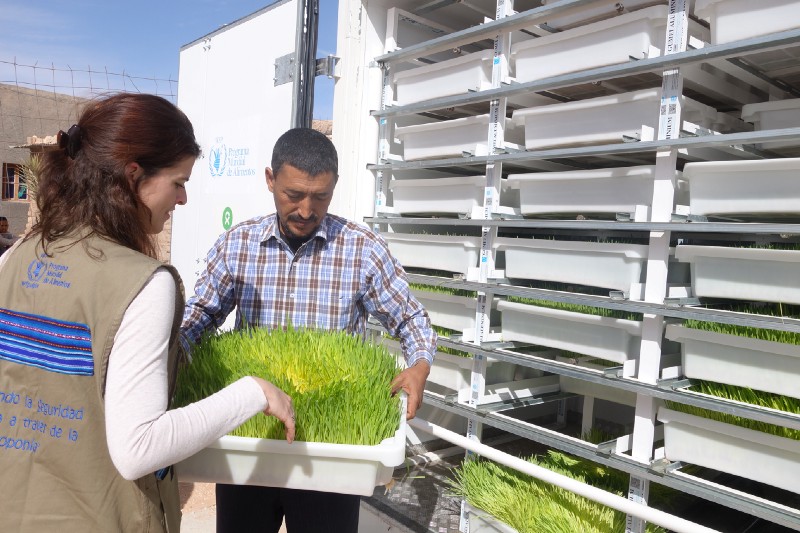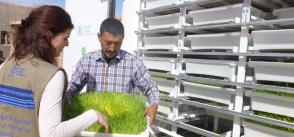
Growing Food in the Algerian Desert
As the Global Festival of Ideas for Sustainable Development takes place in Bonn, Germany, this week (1-3 March), read about one of the innovative projects the World Food Programme (WFP) is showcasing there, allowing farmers to grow crops using up to 90% less water than traditional agriculture.
Amidst the sand dunes of the Algerian desert, the green of barley — or any other crop — seems an unlikely sight. Yet, in five camps hosting Sahrawi refugees near Tindouf, in the South West of the country, barley fodder is sprouting in miniature fields.
The secret behind these tray-sized oases is hydroponics, a technique that allows farmers to grow crops using up to 90% less water than traditional agriculture. With this method, plants do not need soil. They get the nutrients they need from special solutions, and develop up to twice as fast as in traditional farming. In hydroponic units — which can be fuelled by solar energy — light, temperature and water supply can be more precisely controlled and monitored than when plants are grown in soil. Crops are also pesticide-free.
“The lack of green fodder in the diets of our animals is a problem for us,” explains Sahrawi refugee Maryam Abdelkader.
As the arid desert environment doesn’t allow for agricultural opportunities, livestock is the main source of livelihood for up to 90,000 vulnerable Sahrawi, and therefore it is also their most prized possession.
Read the full article by World Food Programme via Medium.
[Photo by WFP/ Nina Schroeder]







